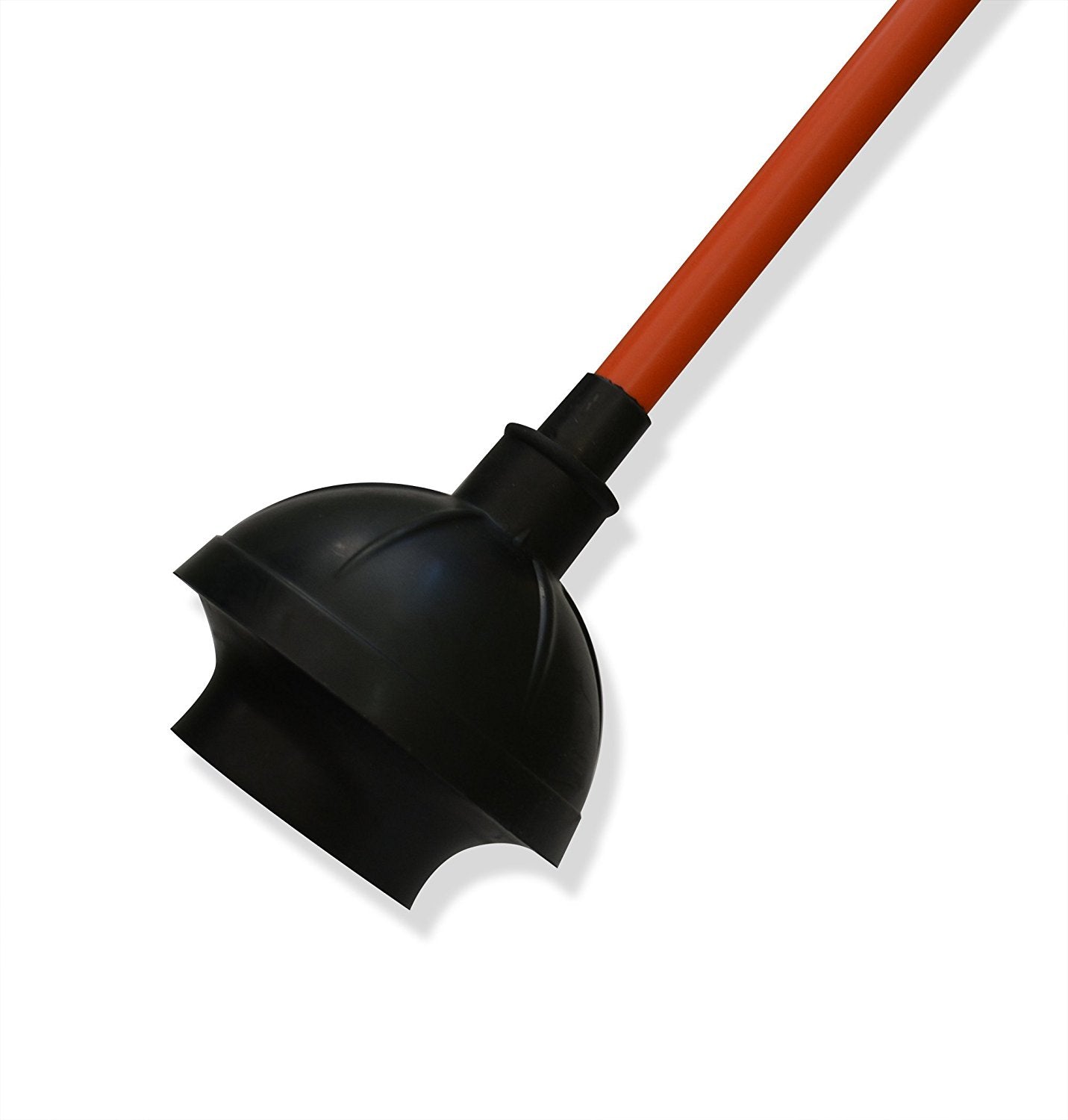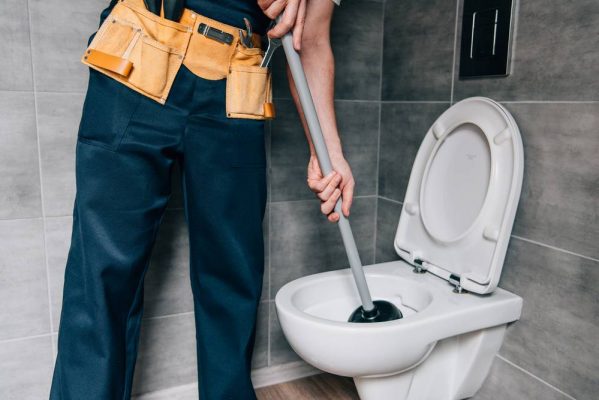Using Plunger and Drain Cleaners: Efficient Approaches
Using Plunger and Drain Cleaners: Efficient Approaches
Blog Article
What're your insights and beliefs on How To Use Your Toilet Plunger Correctly in 5 Easy Steps?

Introduction
Appropriate upkeep of home drains pipes is important for protecting against clogs and making sure smooth water circulation. One of the secret devices in every home owner's toolkit is the plunger, together with different drainpipe cleansers made to tackle stubborn clogs efficiently. This post discovers just how to make use of bettors and drainpipe cleaners successfully to maintain your drains pipes streaming easily.
Section 1: Comprehending Bettors
Types of Plungers
There are numerous types of plungers readily available, each created for various kinds of drains and clogs. One of the most typical types consist of cup bettors, flange plungers, and accordion bettors.
Exactly How Plungers Job
Plungers work on the concept of creating stress and suction to dislodge blockages. When properly used over a drainpipe, they create a vacuum that can pull out debris or break up blockages.
Choosing the Right Plunger
Selecting the right plunger depends on the type of drainpipe and the nature of the obstruction. Mug plungers are suitable for sinks and tubs, while flange plungers are better matched for bathrooms because of their design.
Common Blunders with Plungers
Avoiding these blunders makes sure effective plunging: inappropriate seal around the drain, insufficient pressure, and unclear surrounding debris.
Area 2: Making Use Of Plungers Properly
Preparation
Before diving, ensure the plunger covers the drainpipe totally and creates a tight seal. Clear any type of noticeable debris around the drain opening.
Method
Start with gentle diving movements to construct suction. Boost stress gradually, making use of a stable rhythm. Repeat as needed till the drain removes.
Repairing Tips
If diving does not work, try changing the seal, using oil jelly for a far better seal, or making use of a various type of plunger.
Section 3: Understanding Drain Cleansers
Kinds Of Drain Cleansers
Drain pipes cleansers can be chemical or enzymatic. Chemical cleaners utilize solid chemicals to liquify obstructions, while chemical cleansers use natural enzymes to break down organic matter.
How Drain Cleansers Job
Chemical cleansers respond with obstructions to liquify them, while enzymatic cleansers break down organic products like hair and oil without damaging pipelines.
Security Factors to consider
Always use handwear covers and eye protection when using chemical drainpipe cleansers. Make sure ample ventilation and adhere to maker instructions very carefully.
Eco-Friendly Alternatives
Think about using vinegar and baking soft drink or enzyme-based cleaners for environmentally friendly options that are safer for pipes and the setting.
Section 4: Utilizing Drainpipe Cleaning Company Efficiently
Application Methods
Pour chemical cleaners directly right into the drainpipe opening. Enable them to help the suggested time before purging with warm water. Enzymatic cleaners should sit over night.
Precautions
Avoid mixing different types of cleansers, as this can generate poisonous fumes. Never ever make use of chemical cleaners together with a plunger, as splashing can happen.
Dealing With Persistent Obstructions
For consistent blockages, think about using a pipes snake or calling an expert plumbing professional to avoid damage to pipelines.
Conclusion
Finally, comprehending just how to use bettors and drainpipe cleaners successfully is important for keeping healthy and balanced pipes systems. By selecting the right tools and techniques, property owners can deal with small blockages and protect against significant pipes problems down the line.
How To Properly Use A Plumbing Snake To Clear Drains
When any drain clogs in our home arise, we tend to gravitate toward the plunger and little else. In cases where the plunger and its vacuum-created pressure are not able to clear clogs, many immediately move to harmful chemicals or simply call their plumber to fix the issue.
we’re happy to help with all drain cleaning needs and concerns. This includes informing you on a few other home remedies you may have at your disposal for minor to moderate clogs, one of which is the use of a plumbing snake. Many people have never used one of these before – let’s go over the steps to take when your drain clogs and you have a plumbing snake available.
Attempt Plunger Use
The first step here, as we noted above, should indeed be to grab your plunger when you notice a drain clog and attempt to resolve it this way. If you’re unsure how to use a particular type of plunger, our plumbers can answer any questions you have. If this doesn’t do the trick, however, you move on to the snake.
Locate And Prepare Snake
A plumbing snake is a metal or plastic device that’s generally about a quarter of an inch thick. It’s design with significant extensions, meant to reach down into your clogged drain and push the clog out. Snakes also contain drain augers that will latch onto and push stubborn blockages.
If your plunger doesn’t clear a clog, locate your snake and bring it to the drain in question. We also recommend keeping a bucket nearby to collect the clog once you pull it out, plus we’d advise wearing goggles and possibly protective gloves.
Feed Snake
Once you’re ready to go, feed the snake slowly down the drain, using the crank device it comes with to keep it moving until it finds the clog. Once this happens, much of the clog will be latched onto the coil so you can pull it out, while the rest will simply break up and flow downward.
Detach Debris
Remove the snake slowly from the drain, and once you’ve done so, pick off any debris that’s stuck to the coil. This is another area where wearing gloves is a must.
Flush Drain
Finally, take a few minutes to ensure the snake has done its job correctly. If you’ve been using it on a toilet, flush the toilet a couple times and make sure everything flows well. If you’ve used it on a different drain, flush it with some room temperature water.
https://www.mybuddytheplumber.com/blog/how-to-properly-use-a-plumbing-snake-to-clear-drains/

Application Methods
Pour chemical cleaners directly right into the drainpipe opening. Enable them to help the suggested time before purging with warm water. Enzymatic cleaners should sit over night.
Precautions
Avoid mixing different types of cleansers, as this can generate poisonous fumes. Never ever make use of chemical cleaners together with a plunger, as splashing can happen.
Dealing With Persistent Obstructions
For consistent blockages, think about using a pipes snake or calling an expert plumbing professional to avoid damage to pipelines.
Conclusion
Finally, comprehending just how to use bettors and drainpipe cleaners successfully is important for keeping healthy and balanced pipes systems. By selecting the right tools and techniques, property owners can deal with small blockages and protect against significant pipes problems down the line.
How To Properly Use A Plumbing Snake To Clear Drains
When any drain clogs in our home arise, we tend to gravitate toward the plunger and little else. In cases where the plunger and its vacuum-created pressure are not able to clear clogs, many immediately move to harmful chemicals or simply call their plumber to fix the issue.
we’re happy to help with all drain cleaning needs and concerns. This includes informing you on a few other home remedies you may have at your disposal for minor to moderate clogs, one of which is the use of a plumbing snake. Many people have never used one of these before – let’s go over the steps to take when your drain clogs and you have a plumbing snake available.
Attempt Plunger Use
The first step here, as we noted above, should indeed be to grab your plunger when you notice a drain clog and attempt to resolve it this way. If you’re unsure how to use a particular type of plunger, our plumbers can answer any questions you have. If this doesn’t do the trick, however, you move on to the snake.
Locate And Prepare Snake
A plumbing snake is a metal or plastic device that’s generally about a quarter of an inch thick. It’s design with significant extensions, meant to reach down into your clogged drain and push the clog out. Snakes also contain drain augers that will latch onto and push stubborn blockages.
If your plunger doesn’t clear a clog, locate your snake and bring it to the drain in question. We also recommend keeping a bucket nearby to collect the clog once you pull it out, plus we’d advise wearing goggles and possibly protective gloves.
Feed Snake
Once you’re ready to go, feed the snake slowly down the drain, using the crank device it comes with to keep it moving until it finds the clog. Once this happens, much of the clog will be latched onto the coil so you can pull it out, while the rest will simply break up and flow downward.
Detach Debris
Remove the snake slowly from the drain, and once you’ve done so, pick off any debris that’s stuck to the coil. This is another area where wearing gloves is a must.
Flush Drain
Finally, take a few minutes to ensure the snake has done its job correctly. If you’ve been using it on a toilet, flush the toilet a couple times and make sure everything flows well. If you’ve used it on a different drain, flush it with some room temperature water.
https://www.mybuddytheplumber.com/blog/how-to-properly-use-a-plumbing-snake-to-clear-drains/

I found that blog post about How To Use Your Toilet Plunger Correctly in 5 Easy Steps while doing a lookup on the internet. For those who appreciated our blog post please don't forget to pass it around. Kudos for your time. Please pay a visit to our site back soon.
Call Today Report this page